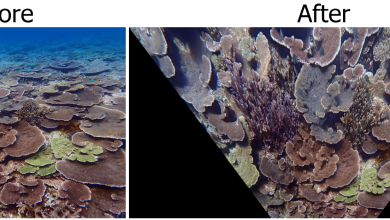Ocean 180 Video Challenge: Turning Discoveries into Stories
Annual Contest Invites Ocean Scientists to Share Research in Video Form
MELBOURNE, FLA. — Lights, camera, research!
For the second year, the Florida Center for Ocean Science Education Excellence, known as COSEE Florida, is sponsoring a contest that encourages scientists to create 180-second video summaries of their published ocean-related research.
The Ocean 180 Video Challenge, funded by a National Science Foundation grant, seeks to tap into the competitive spirit of scientists by challenging them to use video to share the meaning, significance and relevance of their research with a broader audience. Submissions must be based on material published between Jan. 1, 2009 and Dec. 1, 2014.
“Ocean 180 was designed as a way to help scientists approach science communication in a new way,” said Mallory Watson, the COSEE Florida scientist at Florida Institute of Technology in Melbourne. “In just one 3-minute video, you have the potential to reach tens of thousands of students with your research, exposing them to cutting-edge ocean science discoveries and the potential in science careers.”
These video abstracts will be judged by middle school students from around the world.
In the first year of the contest, over 30,000 students in 6th, 7th and 8th grades from 13 countries crowned three scientists as winners. Students were tasked with evaluating the top 10 submissions and selecting the videos which best communicated the results and implications of the research. A team of science and communications experts had previously selected the 10 finalists.
Teachers may register their classroom to participate by going here.
Top honors were claimed by scientists studying internal waves in the Southern Pacific, microbes in the Amazon River plume, and bull sharks in southern Florida. The winners shared $6,000 in cash prizes – a pool that has grown to $9,000 this year.
Laurence Yeung, who last year was completing his Ph.D. at UCLA, was a finalist in the video contest and ended up finishing second overall. He said the process of making the video brought new perspective to his work.
“When you’re in the lab you worry about the tiny details about the research,” he said. “Participating in Ocean 180 helped me step back and say, ‘Why did I start doing this in the first place? What was that spark that got me first interested?’ It helped me think more broadly about [my research] and come up with new ideas for future work and how to communicate those results.”
Watson said such reevaluation is a key byproduct of the competition.
“With only 3 minutes, scientists need to carefully assess which portions of their research are most impactful and relevant to a broader audience. We were amazed at what scientists were able to create last year and are already looking forward to this year’s submissions,” she said.
Video submissions will be accepted starting Oct. 1 and through Dec. 1. Winners will be announced in late February. Official Ocean 180 Video Challenge rules and guidelines are available at http://ocean180.org. The site also includes links to submissions from last year’s finalists and pointers on how to design and produce a successful video. Questions regarding the Ocean 180 Video Challenge may be directed to info@ocean180.org.
###






